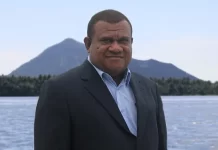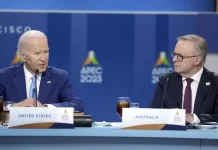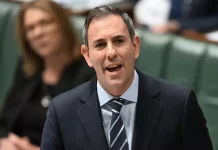Fisheries officials from Fiji and the Cook Islands as well as representatives from the Fiji Navy are currently undergoing a two-weeks training on e-reporting.
The training which is organised through the Forum Fisheries Agency (FFA), Pacific Community (SPC) with funding from PEUMP and the Australian Government also saw the trainees receiving 20 tablets which will be used to gather data for analysis and information sharing.
The training aims to get Fiji to become fully compliant with the Western Central Pacific Fisheries Commission (WCPFC) Conservation Management Measure (CMM) on mandatory e-reporting that comes into effect on the 1st of January, 2024.
Speaking to the 25 trainees, Minister for Agriculture and Waterways and Acting Minister for Fisheries and Forestry, Vatimi Rayalu said the training marks an important step in Fiji’s Fisheries technological advancement.
“I would like to acknowledge the continuous collaboration rendered to us through the support of SPC and FFA. Through their support, Fiji continues to experience the significance and benefits of advancing electronic reporting in the fisheries industry,” explained Rayalu.
“The fishing sector plays a crucial role in the global economy and food security. However, traditional paper-based reporting methods have proven to be time-consuming, inefficient, and prone to errors. To address these challenges, Regional Fisheries Management Organisations such as WCPFC have agreed that the implementation and use of electronic reporting systems be encouraged in order to address the needs of members.”
Rayalu added that electronic reporting enhances the timeliness and efficiency of data transmission.
“With electronic reporting, crucial information can be transmitted in real-time, allowing for more rapid analysis and response. This enables fisheries managers to make informed decisions based on up-to-date data, leading to improved resource management and conservation efforts.”
“Moreover, electronic reporting systems provide valuable tools for monitoring and enforcement. By using onboard e-reporting technology, fisheries authorities can track and verify fishing activities, ensuring compliance with regulations and reducing illegal, unreported, and unregulated (IUU) fishing practices.”

The ability to monitor fishing activities electronically promotes transparency in the industry and holds those who engage in illegal or unsustainable fishing practices accountable.
Rayalu said the Government was thankful to the partners and donors who have secured funding for the provision of tablets as well as the ongoing training that will certainly boost the knowledge of the fisheries officials and partners.
At the conclusion of the hands-on training, 20 vessels operating in the high seas and the Western and Central Pacific Ocean will be given these tablets as Fiji progresses toward 100 percent of e-reporting implementation.
FFA’s representative, Ana Taholo says that the training and the provision of tablets would not have been made possible without the support of the Australian Government.
“FFA acknowledges the interest from Fiji to work towards 100 percent implementation of e- reporting and we are thankful to the Australian Government and PEUMP for the funding support that has enabled the provision of 20 tablets to assist with e-reporting requirements,” said Taholo.
Tim Pickering, Head of the Aquaculture Section of the Fisheries Aquaculture and Marine Ecosystems (FAME) Division of the Pacific Community shared the same sentiments and said that SPC is committed to ensuring that Fiji is assisted with training and capacity needs in the implementation of e-reporting.
“SPC values the importance of data collection and foresees that with the tablets and training provided, decision makers will be provided with the right information to assist with the development needed policies and legislations,” added Pickering.
The training will end next week.
SOURCE: FIJI GOVT/PACNEWS















